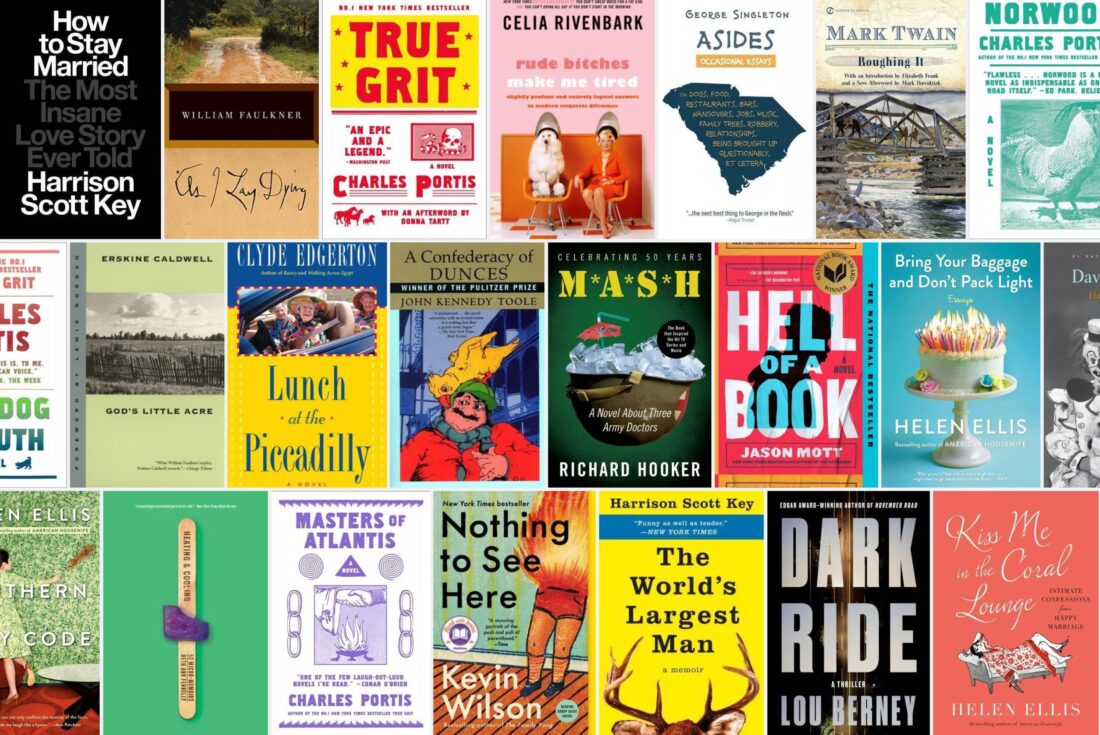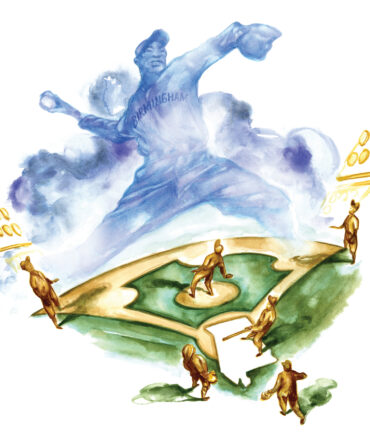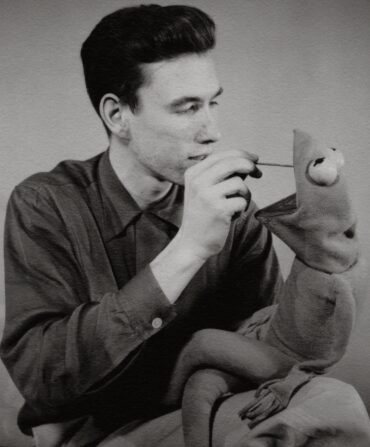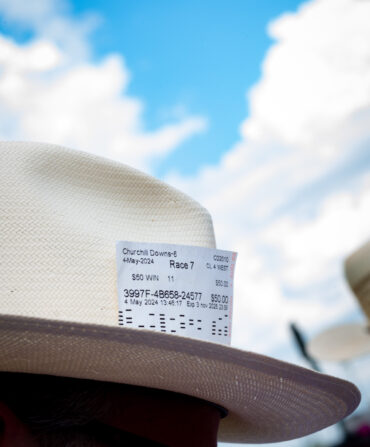A good book is gold, but a good, funny book is priceless—and exactly the sort of thing best handed down from a friend. For a personal endorsement and proof of LOLs, we asked noted writers and G&G editors to share their favorite funny reads by Southern authors (or about Southerners). Some are old, some are new, all are solid antidotes to seasonal depression.

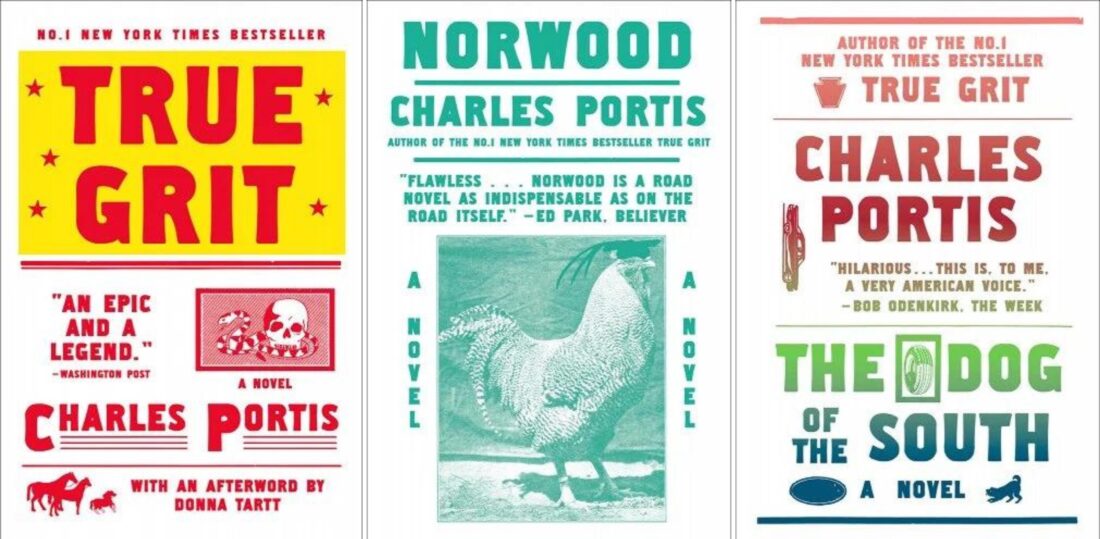
One of my own comic heroes is the late Charles Portis. While Portis is best-known for True Grit, I’m also a big fan of his novels Norwood and The Dog of the South. In fact, there are scenes in each book so funny I’m cracking up even as I write this sentence. G&G’s own Roy Blount Jr. said it best: “Charles Portis could be Cormac McCarthy if he wanted to, but he’d rather be funny.” —Taylor Brown, author and contributor
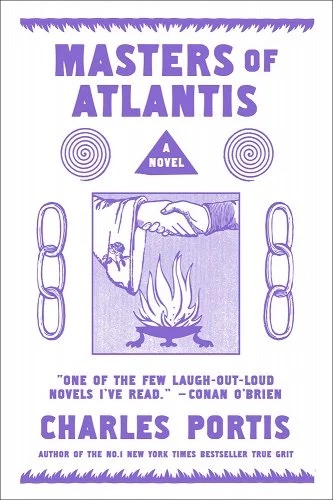
I will tell anyone who asks that Portis—an Arkansas boy who died in 2020—is the driest, funniest writer in the history of American letters, less a fabulist like Twain and more like a male Flannery O’Connor who hasn’t gone to church in a while. Portis is one of the few authors I can reread over and over. I’m never not awed by the pure, quiet comedy of his sentences. His novel Masters of Atlantis follows an initiate into a cult-like secret society that turns out to be pure farce, like all cults and most secret societies. In an age of conspiracy nuts, this book reminds you that nothing is new under the sun. —Harrison Scott Key, author and contributor
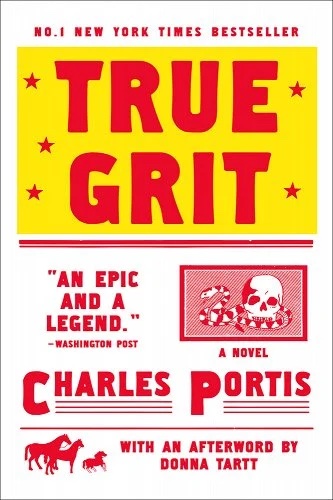
Mattie Ross from Dardanelle, Arkansas, is the feisty fourteen-year-old narrator of True Grit by Arkansas writer Charles Portis. Her voice is unforgettable and Portis’s dialogue is spot on and spit-take funny. —Beth Ann Fennelly, author and contributor
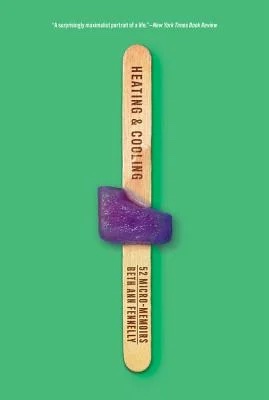
I stuff somebody’s stocking every year with Beth Ann Fennelly’s Heating and Cooling. It’s a beautiful, whip-smart, but most of all side-eye funny collection of “micro-memoirs” about her happy marriage. What’s a micro-memoir? Two sentences on why she left her nail salon. —Helen Ellis, author and contributor
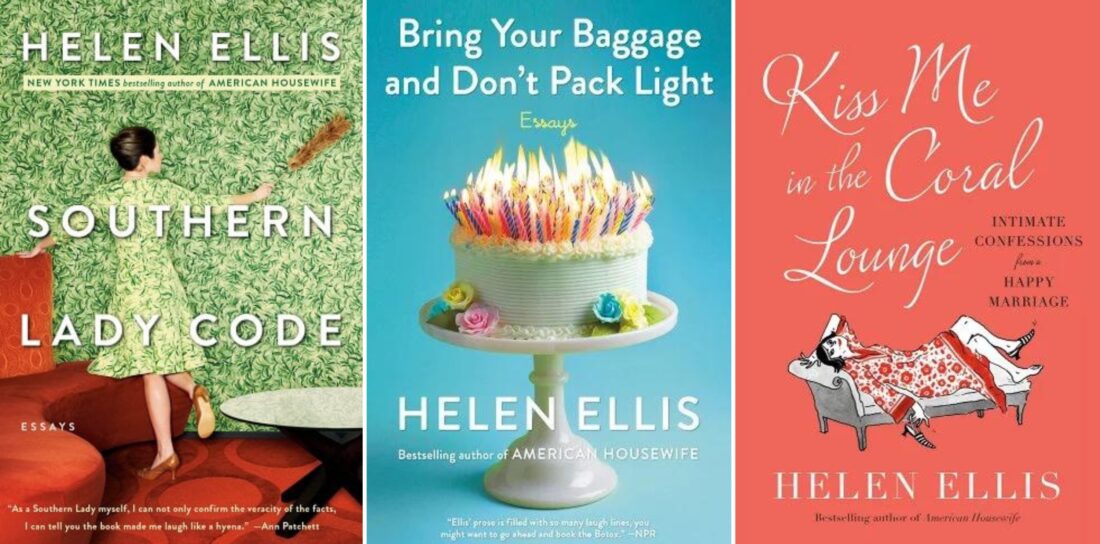
It still makes me sad that I had to cut the phrase “poot in a box” from the first essay the Alabama native Helen Ellis wrote for us, because that’s just the kind of thing that makes me laugh out loud, and I only did so because I already had Beth Ann Fennelly breaking wind in the same feature. Laughing out loud is something I’ve continued to do every time I read something by Helen, from her other pieces for G&G to her social media feeds to her books of essays: her hilarious demystifying of Southern Lady Code, aka saying “something not-so-nice in a nice way”; Bring Your Baggage and Don’t Pack Light, her ode to female friendship; and her latest, Kiss Me in the Coral Lounge, in which she turns her gimlet eye toward marriage. —Amanda Heckert, executive editor
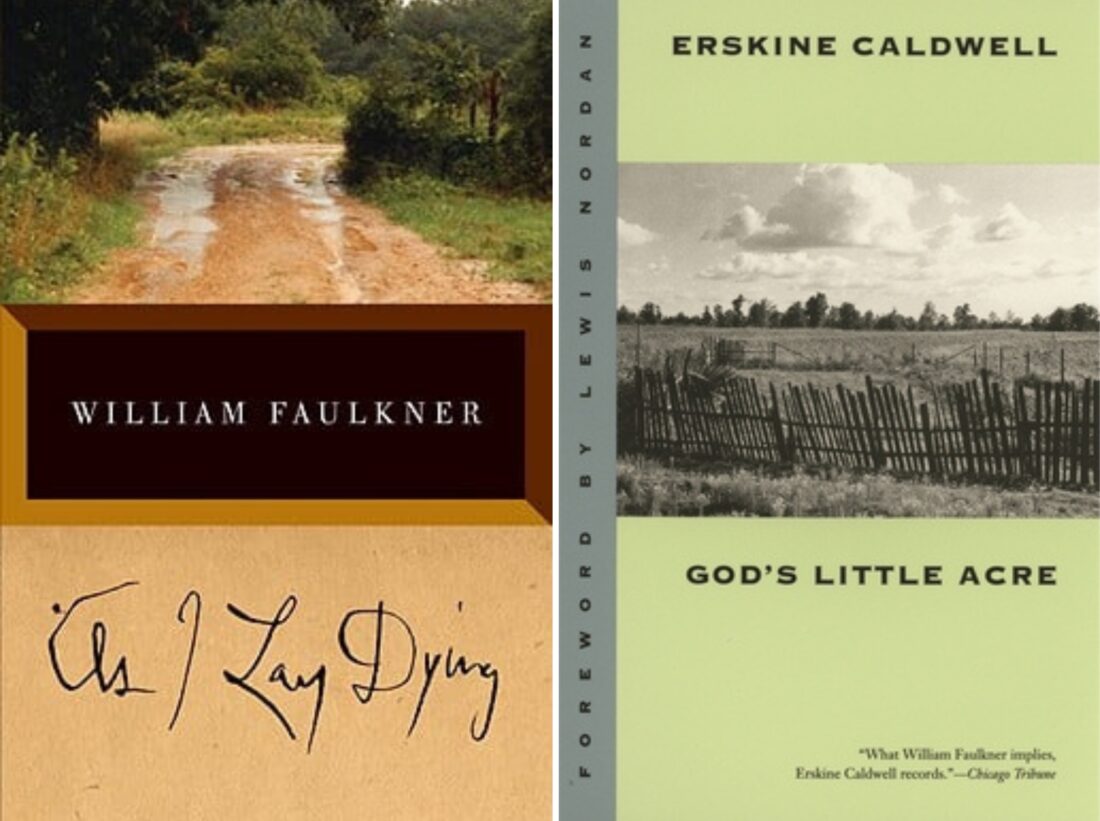
The funniest book I ever read was As I Lay Dying. Only William Faulkner could write a novel that macabre and still make the reader laugh page after page. My second choice is God’s Little Acre. What a cast of characters. The film adaptation is even funnier. —James Lee Burke, author

I know I’m not breaking news when I say that George Singleton is a comedic genius (or that he’s sort of a regular non-comedic genius too, just don’t tell him I said that), but his new collection of essays, Asides, has been making me laugh even more than the usual Singleton fare. I keep setting it down to yell “hey, listen to this!” so often that it’s starting to annoy my wife. —Nic Brown, author and contributor
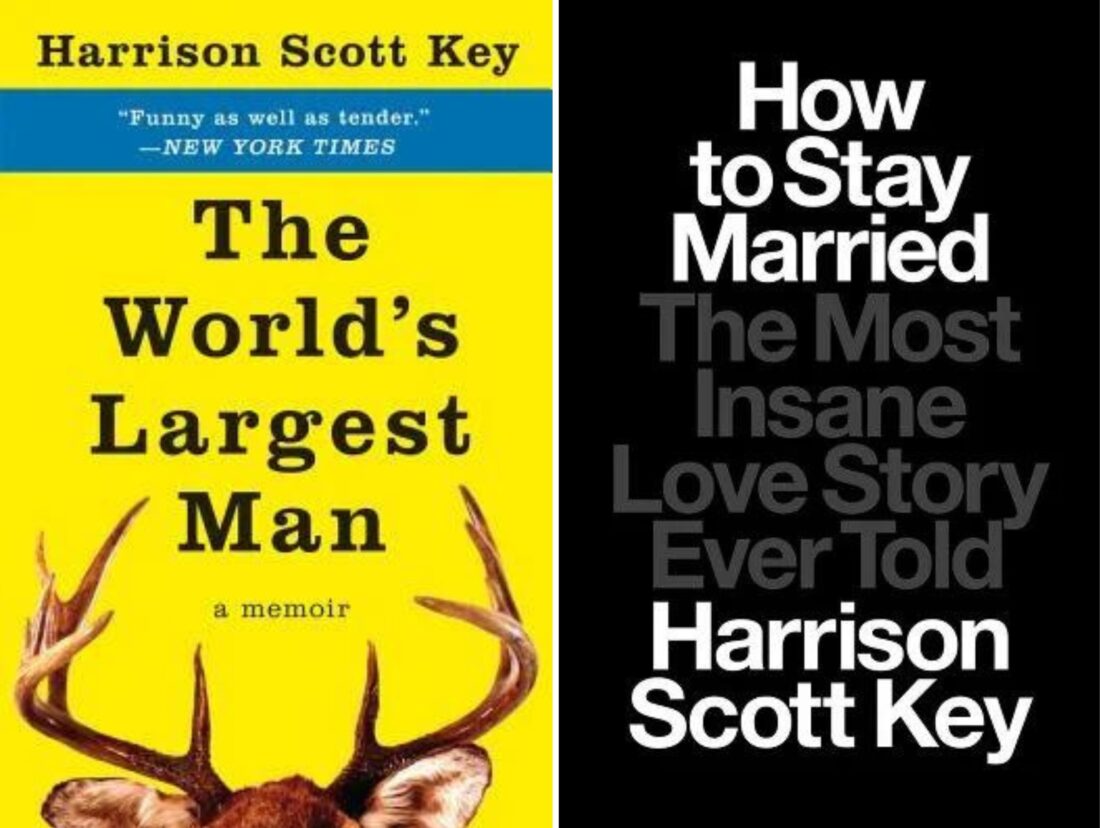
I like to laugh so hard I cry, and few can rival my fellow Savannah native Harrison Scott Key in that regard. With memoirs like The World’s Largest Man and How to Stay Married: The Most Insane Love Story Ever Told, the Thurber Prize for American Humor winner dives deep into the fissured, tragicomic heart of the South—a place where you often aren’t sure whether to laugh or weep, so you just do both like a madperson. HSK has a way of making that okay, and it’s one hell of a blessing for the rest of us. —Taylor Brown
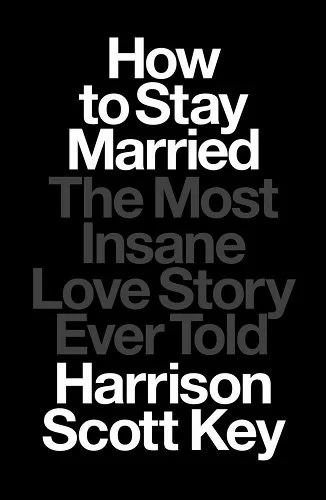
I really loved reading Harrison Scott Key’s How to Stay Married: The Most Insane Love Story Ever Told. In true Key fashion, he took a shockingly heartbreaking story—his wife’s affair—and made it wildly entertaining. —Kinsey Gidick, contributor
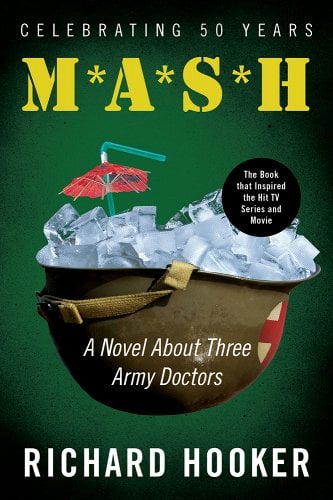
Most readers over fifty will remember M*A*S*H, the wildly popular sitcom focused on a field hospital in the Korean War, The Office of the 1970s, but I demand you forget all that. The book that started it all—MASH: A Novel About Three Army Doctors by Richard Hooker—is far funnier than the show, which grew too political for its own good. The inspiration for the real MASH unit (“Mobile Army Surgical Hospital”) was Dr. Jeremiah Henry Holleman, a Mississippi surgeon who served in both WWII and Korea and died in 2011 in Columbus, Mississippi. The book is still funny after all these years, a Catch-22 that’s far easier on the eyes. —Harrison Scott Key
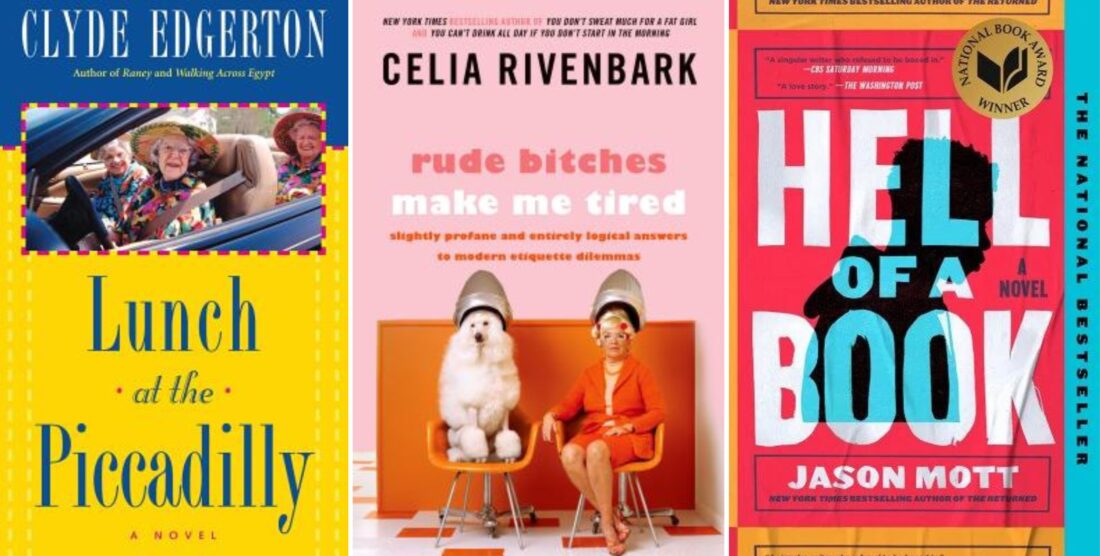
I’m going to choose three of my fellow Wilmington writers: Clyde Edgerton, Jason Mott, and Celia Rivenbark. Clyde’s Lunch at the Piccadilly is a hilarious send-up of aging in a small town. Celia’s Rude Bitches Make Me Tired is the book on Southern etiquette we all should read. Jason’s National Book Award–winning Hell of a Book is a heartrending exploration of police violence made all the more powerful because of the true hilarious writing that accompanies the pain. —Wiley Cash, author and contributor
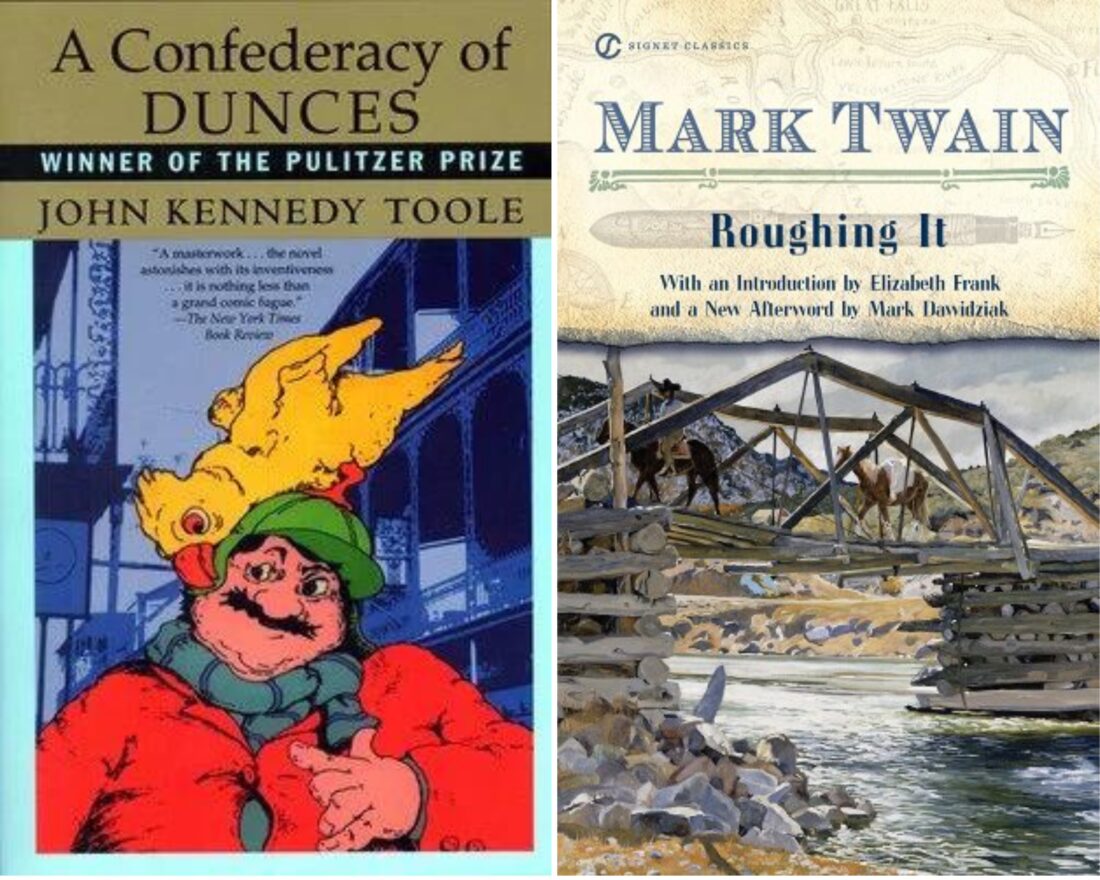
The first book that comes to mind is A Confederacy of Dunces by John Kennedy Toole, which came out in the early eighties. I lived in a big group house then and was reading in bed one night. I laughed so loudly that the next day my roommates demanded to know whom I had been entertaining the night before. Does Mark Twain count? He’s from Missouri. Roughing It is about traveling to California and Hawaii in the 1870s. My great-grandmother gave me a first edition when I was in high school…I remember cackling a lot at that, again, out loud. —Bill Smith, chef and contributor
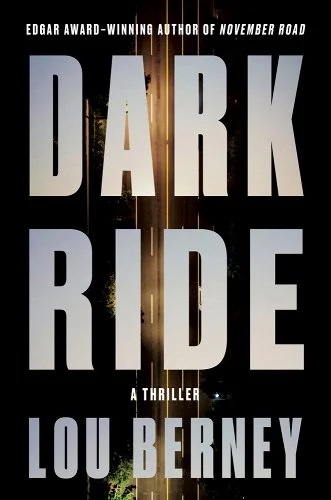
One of my favorite books of 2023 is Dark Ride by Lou Berney. What’s funny about a modern-day, hard-boiled Oklahoma crime noir? Four words: Black Sabbath loving gramma. Listen to it on audiobook because the narrator, Johnathan McClain, really brings her home! —Helen Ellis
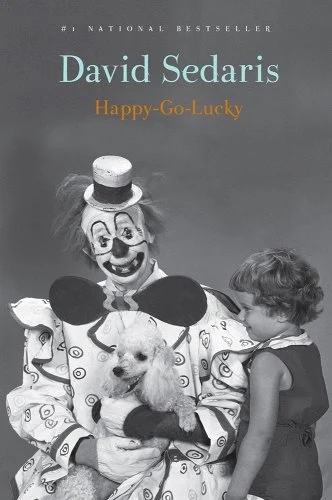
David Sedaris has a knack for making his readers laugh and cry in the same chapter, and his latest collection of personal essays, Happy-Go-Lucky, fits the mold. As in many of his other works, the North Carolina native delves into painfully honest (and sometimes cringey) reflections of his tumultuous relationships with his eccentric family. But he always manages to find the humor in every situation, and I found myself often chuckling as I listened to the audiobook (read by Sedaris himself). —Emily Daily, newsletter editor
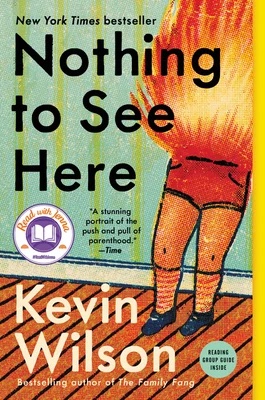
The premise of Kevin Wilson’s 2019 novel Nothing to See Here is, in and of itself, hilarious: A young woman is tasked with taking care of two ten-year-olds who spontaneously burst into flames at the slightest inconvenience. But as a masterful storyteller, Wilson anchors that absurdity in humanity. Dig a little bit deeper, and this laugh-out-loud book is about the universal desire to find belonging. —Caroline Sanders Clements, associate editor
Garden & Gun has affiliate partnerships and may receive a portion of sales when a reader clicks to buy a product. All products are independently selected by the G&G editorial team.


